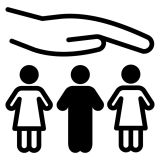In this article:
What is a Child Development Degree?
A child development degree is a college program that focuses on understanding how children grow and develop from birth through adolescence. It teaches students about the physical, emotional, social, and cognitive stages of development, as well as the factors that influence a child’s growth, such as family, culture, and environment. The program aims to prepare students to work with children in various settings and support their overall well-being.
In this program, students take courses in child psychology, education, family dynamics, and early childhood development. They learn how to assess developmental milestones, design age-appropriate activities, and address challenges children may face, such as learning delays or emotional struggles. Many programs also include hands-on experiences, like internships or observations, where students can apply their knowledge in real-world settings such as schools, childcare centers, or community organizations.
Program Options
A child development degree offers several program options to accommodate different educational and career goals. Here are the most common options:
- Associate Degree in Child Development: A two-year program that provides a foundation in child growth, learning, and behavior. This program is ideal for those seeking entry-level roles in childcare, preschool teaching, or as teaching assistants, or for those planning to transfer to a bachelor’s degree program.
- Bachelor’s Degree in Child Development: A four-year program that offers an in-depth study of child development from infancy to adolescence. Students learn about topics such as early childhood education, family dynamics, and developmental psychology. Graduates are prepared for careers in education, social services, or program coordination.
- Master’s Degree in Child Development: A graduate-level program focused on advanced concepts, such as developmental research, curriculum design, or family counseling. This degree often includes opportunities for specialization, such as early intervention or child advocacy, and prepares students for leadership roles in education, healthcare, or social services.
- Doctorate (Ph.D.) in Child Development: A research-focused program for those interested in conducting original studies on child development or pursuing academic careers. Doctoral programs often emphasize advanced research methodologies and allow students to focus on specific areas, such as cognitive development or policy analysis.
- Certificates in Child Development: Short-term programs that specialize in areas such as early childhood education, child behavior management, or developmental assessment. These certificates are ideal for professionals seeking to enhance their skills or meet specific career requirements.
Skills You’ll Learn
A child development degree equips students with a wide range of skills that are essential for working with children and supporting their growth and well-being. Here are some of the key skills learned:
- Understanding of Developmental Milestones: Students learn to recognize physical, emotional, cognitive, and social milestones in children from birth through adolescence, helping them assess and support healthy development.
- Behavior Observation and Assessment: The program teaches how to observe and analyze children’s behavior and interactions to identify strengths, challenges, or developmental delays.
- Communication and Interpersonal Skills: Students develop the ability to communicate effectively with children, parents, and professionals, fostering trust and collaboration in various settings.
- Activity Planning and Curriculum Design: Students gain the skills to create age-appropriate learning activities and educational programs that support children’s development and learning goals.
- Problem-Solving and Critical Thinking: The degree emphasizes evaluating situations and developing strategies to address challenges children may face, such as learning difficulties, emotional struggles, or family issues.
- Cultural Competency: Students explore how cultural, social, and environmental factors influence child development, preparing them to work with children and families from diverse backgrounds.
- Advocacy and Support: Graduates are equipped to advocate for children’s rights and well-being, working with families and communities to provide resources and support.
What Can You Do with a Child Development Degree?
A child development degree opens the door to numerous career opportunities focused on supporting children’s growth, education, and well-being. Here are some of the career paths you can pursue with this degree:
- Preschool Teacher: Work in educational settings to guide and support young children during their critical early years. Teachers create learning environments that foster cognitive, social, and emotional development.
- Childcare Program Administrator: Plan, develop, and manage childcare programs that support the needs of children and families. Administrators ensure compliance with regulations, oversee budgets, and provide leadership to staff in childcare facilities or community organizations.
- Family Social Worker: Help families navigate challenges by connecting them with resources, providing parenting guidance, and advocating for children’s needs. This role often involves working for social service agencies or nonprofits.
- Consultant: Advise schools or organizations on curriculum design, child development best practices, or policies to support young learners.
- Child Development Specialist: Assess developmental milestones and provide support for children experiencing delays or challenges. These specialists often work in schools, healthcare facilities, or early intervention programs.
- Child Life Specialist: Work in healthcare settings to support children and families dealing with medical challenges. Specialists help children cope with hospitalization through play, education, and emotional support.
- Parent Educator: Provide parents with tools and strategies to support their children’s development, offering workshops, classes, or one-on-one guidance.

